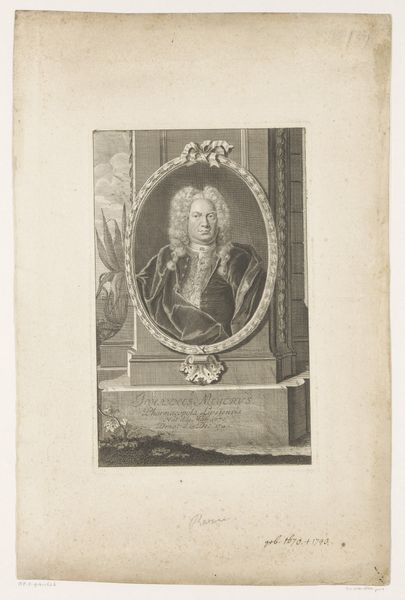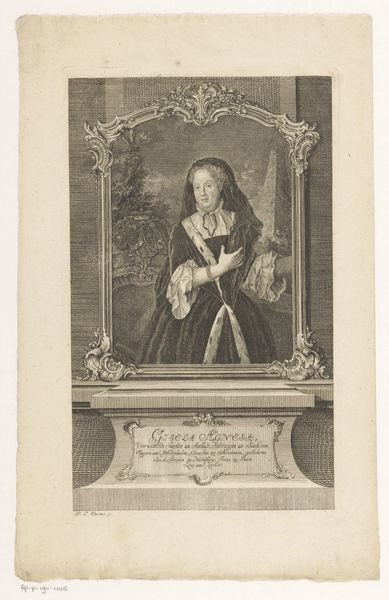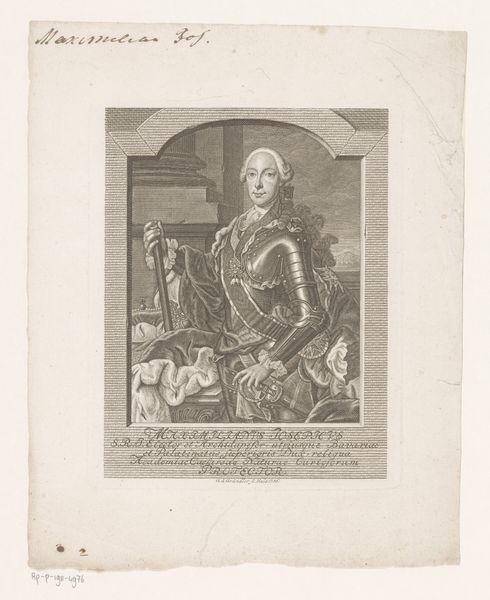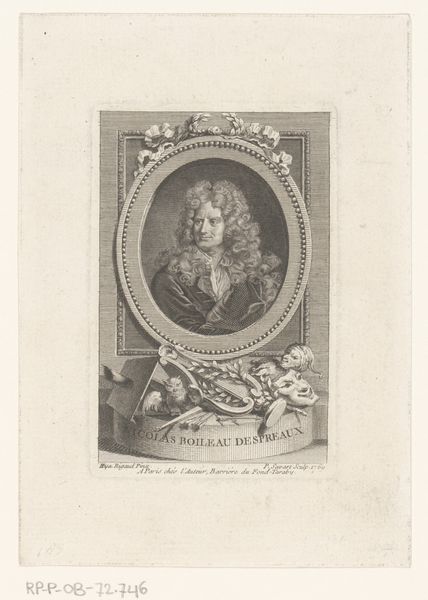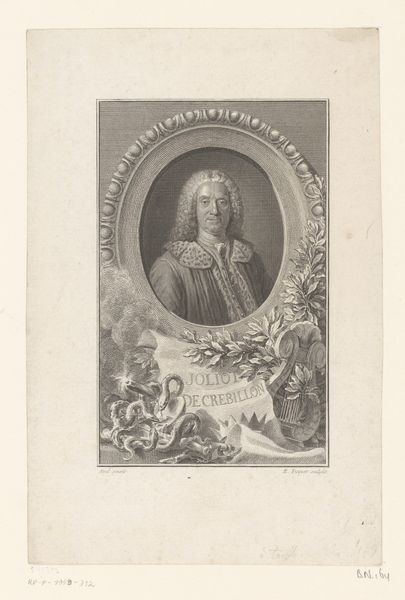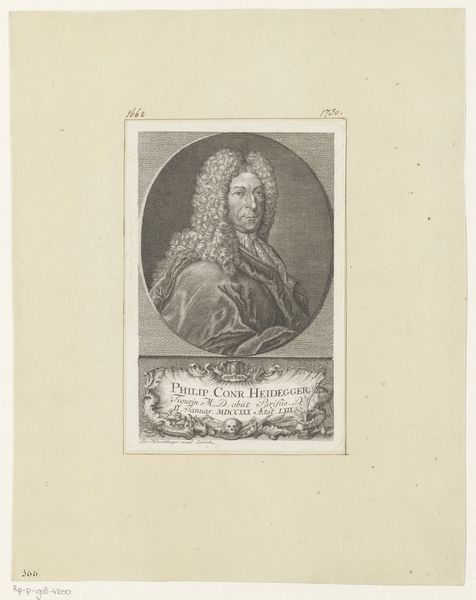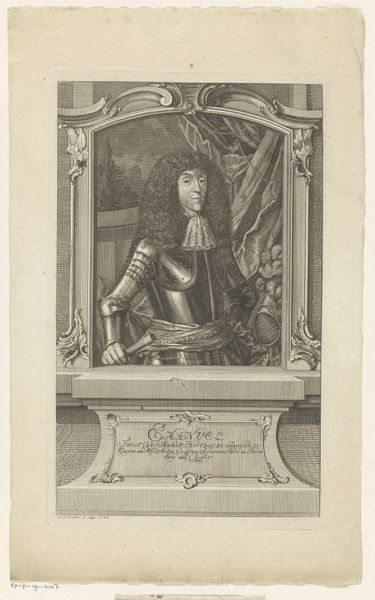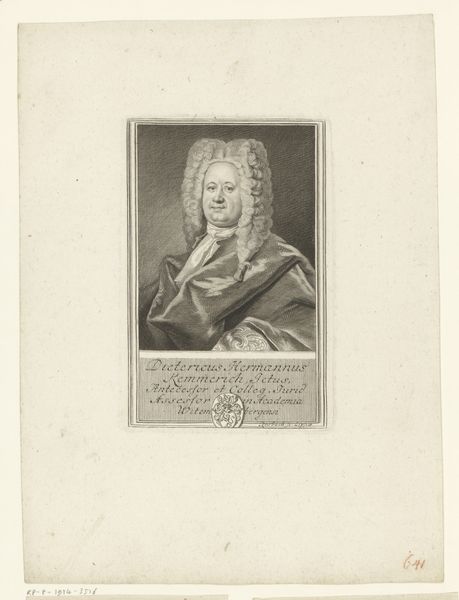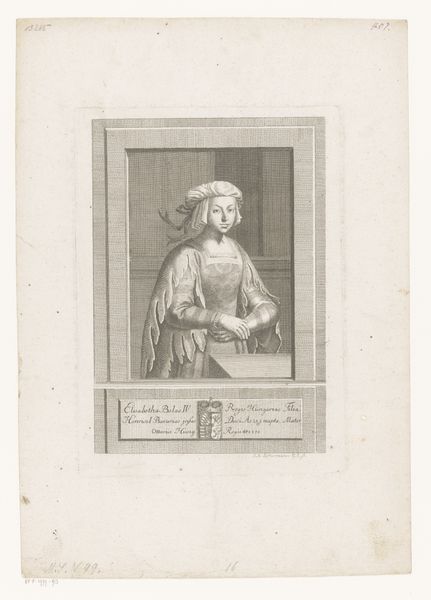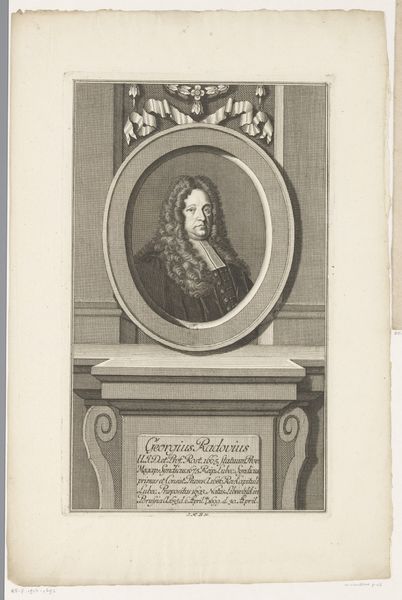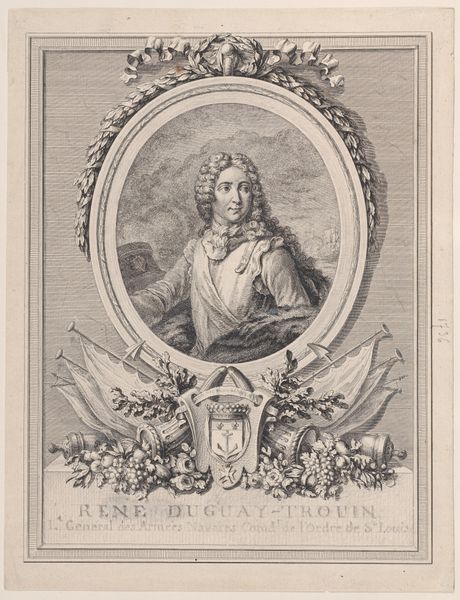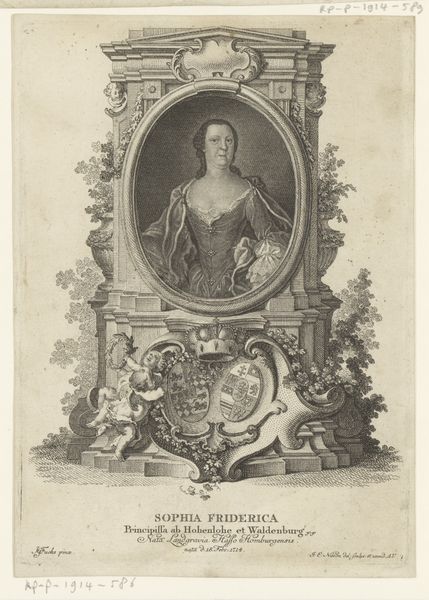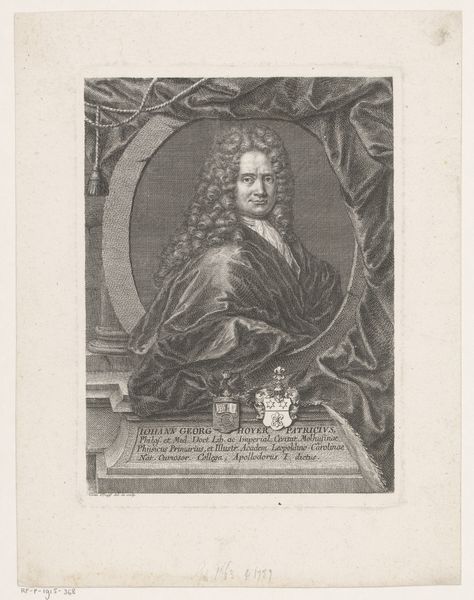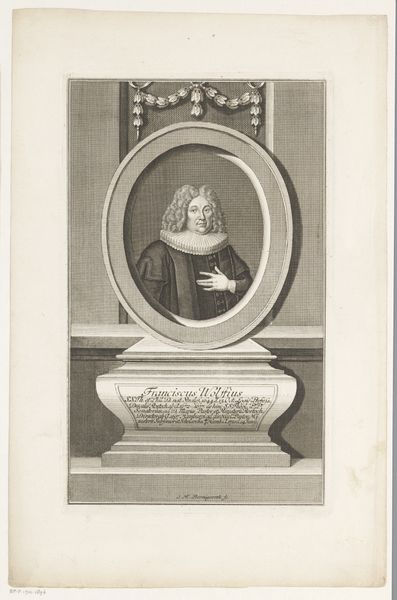
engraving
#
portrait
#
baroque
#
history-painting
#
engraving
#
realism
Dimensions: height 165 mm, width 105 mm
Copyright: Rijks Museum: Open Domain
Editor: So, here we have Johann Martin Bernigeroth's "Portret van Isaak Steiger" from 1735, an engraving held at the Rijksmuseum. The detail achieved is incredible. How can we interpret this print? Curator: Focusing on formal elements, the portrait presents a distinct contrast between the rigid rectangular frame and the softer, oval portrait within. This juxtaposition creates a visual tension, emphasizing the sitter's controlled pose and opulent attire. Notice how Bernigeroth's meticulous engraving technique translates into varied textures. Editor: I see what you mean. The contrast makes it all more compelling. Are there other visual devices used by the artist? Curator: Absolutely. The artist skillfully employs the play of light and shadow, building volume and depth using precise strokes. For example, see how hatching and cross-hatching are used to define the curves of Steiger's face. What feelings arise when considering this strategic manipulation of line and tone? Editor: The subject, Steiger, seems larger than life due to the meticulous strokes. The ornamentation amplifies a feel of nobility. Is this typical of Baroque portraiture? Curator: Indeed. By observing elements such as line work and overall form, we can decode the underlying structures and ideological intentions present in Bernigeroth's piece. Are you beginning to observe the semiotics at play? Editor: Now I understand the interplay between the historical context and artistic intention much better. Thanks for drawing my attention to such specific and brilliant design.
Comments
No comments
Be the first to comment and join the conversation on the ultimate creative platform.
